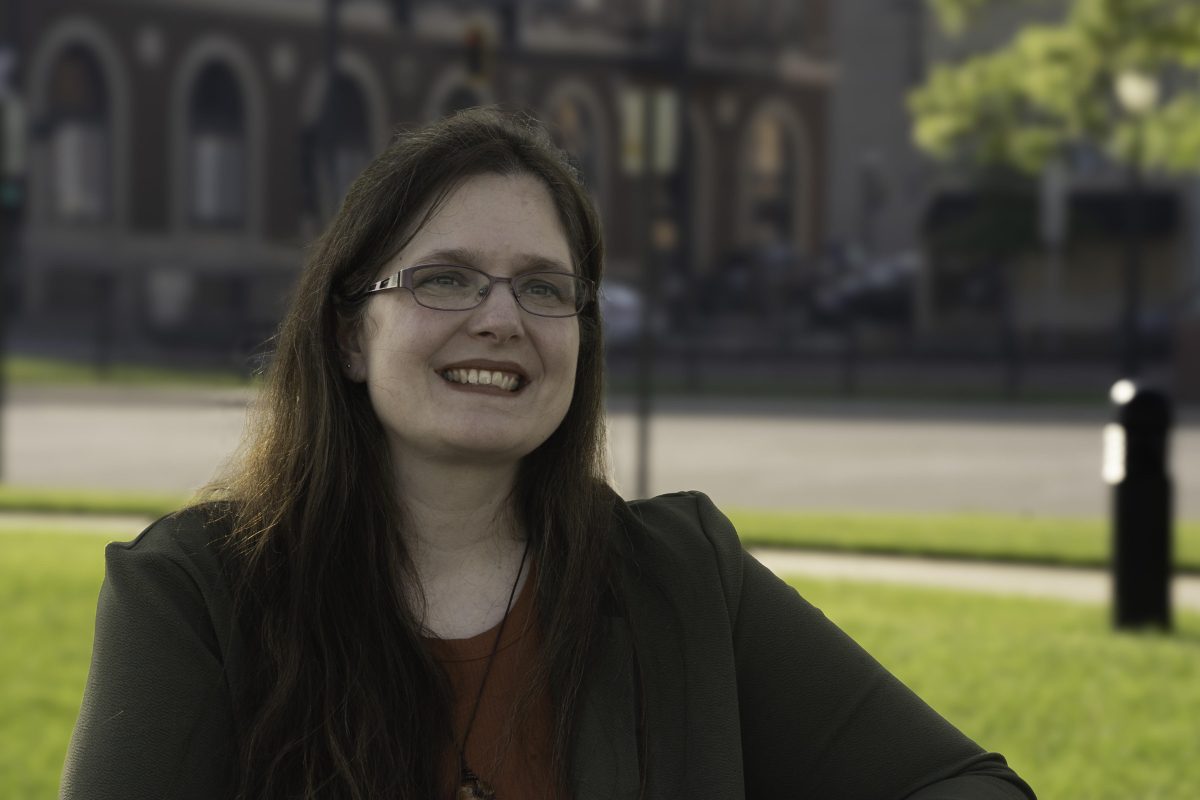
Mandy Moody, a licensed individual social worker and candidate for Iowa House of Representatives District 96. Photo submitted
The main issue that got me active in politics is the impact that regionalization of services has on smaller cities and rural areas.
In October 2013, I was working as a sexual assault advocate in my hometown of Muscatine when my company’s CEO announced the closure of our local domestic violence shelter. What this meant for our community is that the domestic violence shelter that our community started was no longer going to receive the necessary funding to be sustainable.
The state decided that they could provide more services for less money by offering to put victims up in hotels (no security and no trained staff) or encourage them to reach out to friends and family for a place to stay (when, in reality, it is common for victims of domestic violence to be cut off from all other support systems, which is one of the many reasons it is so difficult to get out of safely).
This is going backwards. I remember being put up in a hotel with my Mom and siblings as a child. I also remember how grateful my Mom was that women in similar situations would have the option of a shelter with an undisclosed location. She expressed this gratitude by honoring them in her will.
With this personal experience, I know firsthand how the generosity of our community, along with our local housing services agreeing to oversee the shelter, kept the doors open on this invaluable resource. Unfortunately, this was not the case for all shelters in the region and across Iowa.
Has regionalization of survivor services provided consistent services, coordination of care, and improved outcomes in our community over the past ten years? It has not. Our local services have suffered as a result.
Muscatine lost a domestic violence legal advocate, who had provided this service in our community for seventeen years (which is rare in our line of work). They walked away, leaving the field entirely as a direct result.
The Muscatine Police Department, who worked closely with our survivor services advocates prior to regionalization can’t rely on them due to frequent staff turnover leaving gaps in coverage, have come to rely on the locally funded shelter.
Earlier this year, I called our regional crisis line on behalf of a client in crisis to request an advocate. The advocate stated that they are 45 minutes away and didn’t know Muscatine well, insisting to speak with the client over the phone rather than providing the service in person. Having been an advocate and now as a mental health professional, I know how vital it is in establishing rapport to sit with a person in crisis. This client declined their services.
Starting in 2014, history has repeated itself, first combining mental health with substance abuse and reducing from there. Starting at the county level and paring down over time, the state has arrived at seven regions to service the entire state. Governor Reynolds stated earlier this year, “By combining Iowa’s thirty-two mental health and substance use regions into seven unified behavioral health districts, we can provide consistent services, coordinate care system-wide, and, most importantly, improve outcomes for Iowans.”
While our state’s plan to address behavioral health gaps in Iowa appears to be a good thing, from what I have seen, the impact on smaller communities has been negative. Now that services are required to span large regions of Iowa, the organizations that have the infrastructure to accomplish this are commonly located in urban areas. What this means for Muscatine is that the money that was provided directly to our community to address the mental health needs is going to a large organization located in the Quad Cities.
I ask our legislators to listen to our behavioral health professionals and the patrons of these services, whose voices have been absent in this process. I urge our state to measure outcomes that are more than “number served” or “access to services.” I beg Iowans to see that Iowa is rapidly losing qualified providers. Individual community needs can vary greatly and services should be implemented by those who know the unique needs of the community and are invested in its well-being.
Mandy Moody is a licensed individual social worker and candidate for Iowa House of Representatives District 96. You may reach her at [email protected].
No Results Found
The page you requested could not be found. Try refining your search, or use the navigation above to locate the post.
No Results Found
The page you requested could not be found. Try refining your search, or use the navigation above to locate the post.

